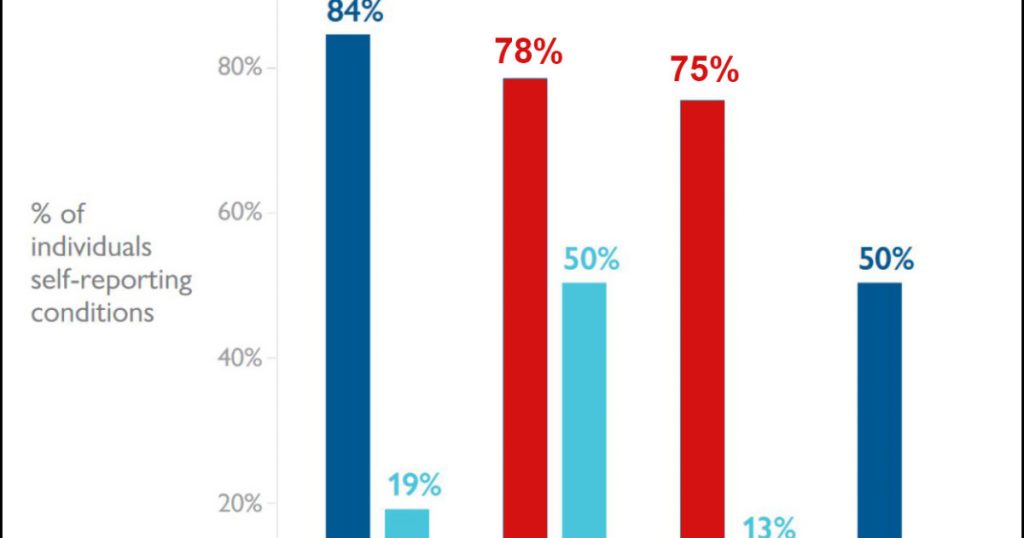Addiction and Mental Illness Are Rampant Among the Homeless
The LA Times reports today that the public perception of homelessness in Los Angeles is more accurate than the official happy talk:
The Los Angeles Homeless Services Authority…said only 29% of the homeless population had either a mental illness or substance abuse disorder….The Times, however, found that about 67% had either a mental illness or a substance abuse disorder. Individually, substance abuse affects 46% of those living on the streets — more than three times the rate previously reported — and mental illness, including post-traumatic stress disorder, affects 51% of those living on the streets, according to the analysis.
But wait. Even the LAT analysis might be too optimistic. A study from the California Policy Lab at UCLA comes up with even higher numbers for the US homeless population:
These numbers, it turns out, aren’t really disputed. So why does it matter? Partly because the right policy response depends on a realistic assessment of the problem. If most of the homeless are just down on their luck and need a temporary place to stay, that calls for a particular kind of housing response. But if the vast majority are mentally ill or struggling with addiction, that calls for an entirely different response.
But that’s not all. I’ve made this point before and gotten raked over the coals for it, but if you want to solve the homeless problem you have to understand the public resistance to building local homeless shelters. Is it because most of us are self-centered assholes who refuse to help the poor if it means even the slightest inconvenience to our otherwise comfortable lives? If that’s the case, the right response might be education or guilt or just plain political bulldozing.
If the Times analysis and the UCLA report are correct, however, maybe local resistance is actually based on understandable concerns, not just free floating racism and assholery. Maybe families with children have good reason to be anxious about having addicts and the mentally ill wandering around their neighborhood. Maybe you would be too.
Social problems are hard to solve already, and they’re even harder to solve if we tell ourselves fairy tales and then insist that anyone who sees things differently is a horrible human being. That gets us nowhere, especially if it turns out that these folks have a more realistic view of the problem than we do and are therefore going to become even more stubborn if we try to tell them they’re wrong about things they can see with their own two eyes. Just a thought.





